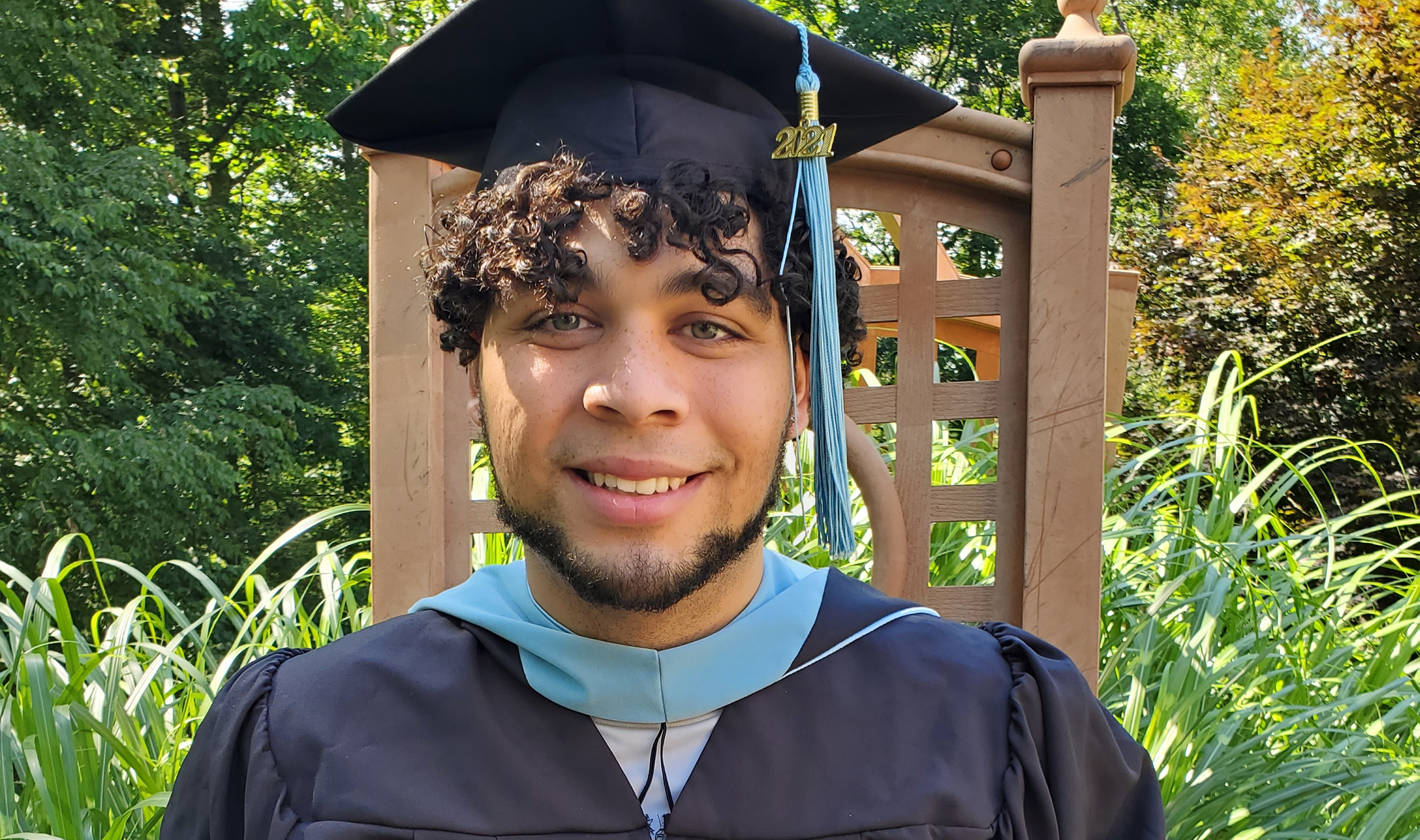Third grade. That’s the grade Trevor Echols points to when his school experience completely changed because of a school counselor. It’s the same grade that he began to believe that he might pursue a career as a school counselor.
“I went to a school district that wasn’t the greatest place for minoritized students, especially for… ‘gifted’ classes are what they were called at the time,” said Echols, a 2021 graduate of the UNC School of Education’s School Counseling program, who grew up as a bi-racial student in a suburb of Harrisburg, Penn. “My elementary school counselor really saw something in me and my abilities, and really pushed for me to be in those accelerated classes.”
After that, Echols said he “flourished” in the classroom.
“Seeing how she was able to be a support system and advocate for me is something that I want to bring into school counseling for myself,” he said. “Each student comes from a unique background and environment, and sometimes they just need that one person who might not be a family member advocating for them and supporting them.
“If I do that, then I’ve done my job.”
Echols did just that this past year as a school counseling intern at the Durham School of the Arts (DSA), and for that work, he was recognized as a recipient of the School of Education’s Galassi-Brown Award, which recognizes students who promote social and educational justice and demonstrate exceptional advocacy for the students they serve, the schools where they work, and the school counseling profession.
Creating high impact connections
For Echols, high school counseling represents a way to help students achieve success in their lives beyond the classroom, connecting them with opportunities and resources within their communities.
Echols said he relied on his counselor to navigate the tough times of high school and to find a path beyond graduation. It’s why he chose to be a high school counselor who can help students during perhaps the biggest first transition in their lives.
In one of his first individual counseling sessions at DSA, Echols met with a Latino student and listened.
“Talking with that student and hearing him express that he didn’t feel like people in the school understood the story of Latinx students, it spoke to me,” he said. “I felt like I was talking to the younger version of myself.
“I’m not Latinx, but I remember going through school thinking, ‘My teachers don’t understand me.'”
So Echols sought out resources to help that student and his fellow Latino students — resources that could help their teachers better connect with them and resources that could chart a course for Latino students after graduation.
He worked with school counseling faculty member Robert Martinez, Ph.D., to connect with LatinxEd, an organization whose mission is to “invest in Latinx leadership and expand educational equity and opportunity in North Carolina.” LatinxEd also partners with the School and is housed in Peabody Hall.
After connecting with LatinxEd, Echols worked with DSA leadership to bring LatinxEd leaders inside the school building. There, LatinxEd leadership presented to the faculty, providing an overview of the area Latino community and offering ways to engage Latino students in the classroom.
That initial presentation led to additional work between DSA and LatinxEd. Echols and school leaders were able to dig into ways to better engage Latino families, who historically had not come to parent nights at the school. The expertise at LatinxEd also provided Echols with insights to help undocumented students envision their future beyond high school.
“LatinxEd was able to offer insights on the path to college for undocumented students,” he said. “Those students don’t have to say, ‘High school is over. My education is done.’ LatinxEd brought in resources that could make that possible.”
While the Galassi-Brown Award bears Echols’s name, he’s adamant that his success as a counseling intern is because of the community around him.
“The award is going to show my name, but it doesn’t show the support systems that I had in place to get to where I am,” he said. “Family, friends, professors allowed me to be the person I am today. People look at awards and see a person’s name, but miss all of the names behind that name.”
Continuing his work at DSA
And next year, Echols will have the opportunity to continue building connections, resources, and relationships that he began during his counseling internship. He will be a full-time counselor at DSA this fall and wants to help even more students.
“I don’t want to stop there,” Echols said, noting his work with LatinxEd. “I want to see what else I can do at DSA. It’s not just the Latinx community. There are additional demographics of students in that building who could use some help.
“There’s always something more you can do. There’s always a new group of students who need an opportunity or an open door. That’s what I love about school counseling.”
